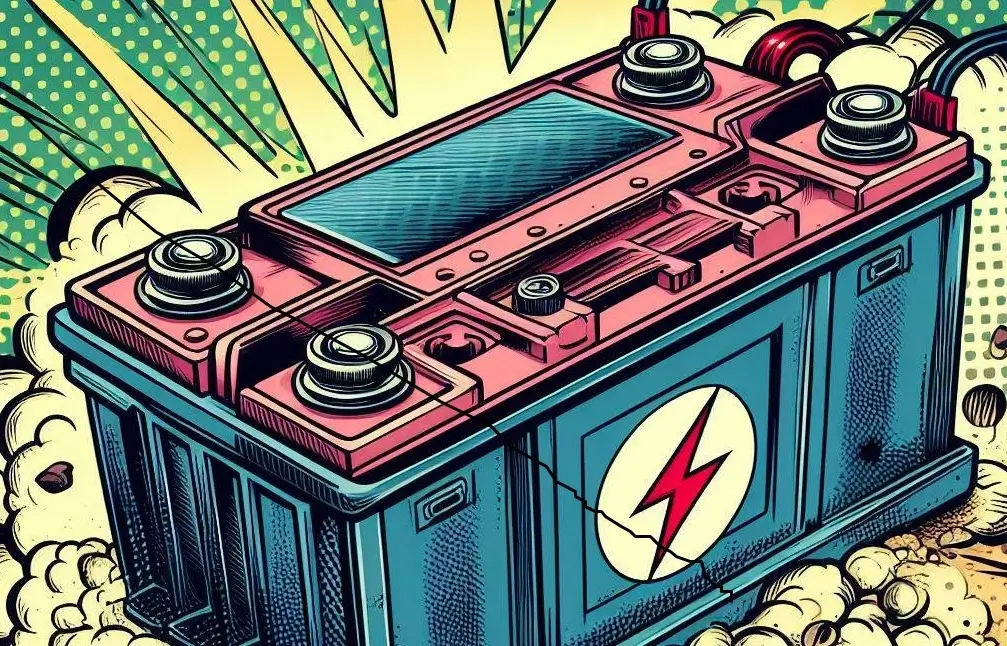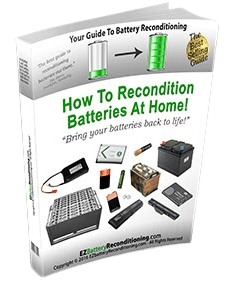Looking for peak performance? Our Battery Chem vs Epsom Salt showdown reveals the secret to maximizing battery life and efficiency.
Picture this: you’re all set for a road trip, but your car won’t start. The culprit? A battery that’s given up the ghost. I know the feeling all too well and the relief of bringing it back to life.
“Battery Chem vs Epsom Salt”—They both have their merits, but I am a big fan of Epsom Salt.
But hold on, it’s not always that straightforward. The effectiveness of this method can depend on several factors, and that’s why you need to read on. I’ll unravel the complexities and show you how to tailor the solution to fit your specific situation.
So, let’s get your car back on the road without breaking the bank.
| Feature | Battery Chem | Epsom Salt |
|---|---|---|
| Product Type | Commercial battery revivor & desulfator | Household salt (magnesium sulfate) |
| Intended Use | Revive sulfated lead-acid batteries | Home remedy to attempt reviving batteries |
| How It Works | Contains chemical compounds to dissolve battery sulfation | Salt solution is purported to dissolve lead sulfate deposits |
| Effectiveness | Claimed to revive dead/sulfated batteries | Mixed results have been reported, and effectiveness is debated |
| Ease of Use | Add directly to battery cells, leave for 8-12 hours | Involves draining battery acid, mixing salt solution, etc. |
| Cost | Around $10-20 per bottle | A box of Epsom salt is very inexpensive |
| Safety | Made specifically for battery revival | Potential risks if not done correctly |
| Longevity of Revival | Advertised to restore battery capacity | May temporarily revive battery, long-term lifespan uncertain |
Table of Contents
Key Takeaways
- Battery reconditioning is an effective way to save on car maintenance costs.
- Battery Chem and Epsom salt offer distinct approaches to reviving car batteries.
- Knowing the advantages and limitations of each method aids in choosing the right one.
Battery Chem vs Epsom Salt
Two popular methods stand out when you need to revive a car battery: Battery Chem and Epsom salt. Let’s compare!
Effectiveness
Battery Chem and Epsom Salt both aim to revive dead batteries. They both recondition batteries by breaking down the build-up of sulfur crystals on the plates.
- Battery Chem helps around 70% of dead batteries come back to life.
- Epsom Salt has a higher success rate. It effectively reconditions around 90% of dead batteries.
I’ve seen Epsom Salt used commonly for its affordability and ease of access. Users report improved battery performance after use. Battery Chem isn’t far behind, though it may be less known.
So, which one is the go-to for a dead battery? Based on success rates, Epsom Salt might be the better choice to revive your battery. Remember, both have their merits. It depends on the condition of your battery and maybe your own preference.
Cost
Cost is a big factor when weighing your options between Battery Chem and Epsom salt. Let’s break it down.
Battery Chem’s price varies depending on where you buy it and in what quantity. You can find it in stores that specialize in car parts or batteries or via mail order.
- A small kit can cost around $20 to $40.
- Larger amounts might be more expensive.
Epsom Salt This is the budget-friendly choice. It’s versatile and easy to find in most stores.
- Expect to pay a few dollars for a big bag.
- That bag can handle several battery treatments.
It’s cost-effective. Epsom salt is a good choice for reconditioning on a dime— it’s not just for baths!
Safety
When we talk about battery chemicals, safety must be front and center. I always follow the safety guidelines carefully. This stuff is a chemical product and comes with its own set of risks. Gloves and goggles are my go-to protection. They keep my eyes and skin safe.
Epsom Salt is generally safer. But hey, that doesn’t mean we should abandon caution! Like any substance, I use it wisely to avoid mishaps like battery mess-ups.
Here’s what I keep in mind with both:
- Protective Gear: For both substances, I wear gloves and goggles.
- Ventilation: Working in a well-ventilated area is a must, especially with Battery Chem.
- Follow Instructions: I read those labels! They’re not just for decoration.
- Environmentally Friendly: I think about Mother Earth, too. I dispose of any leftovers properly.
Ease of Use
Using Battery Chem is easy. Adding the chemical directly to the battery cells is a breeze, and following the manufacturer’s instructions is super simple.
On the flip side, Epsom Salt needs a bit more from me. First, I have to mix it in warm distilled water. Then, I carefully pour this mixture into each of the battery’s cells. But it isn’t exactly rocket science and is still suitable for novices.
Battery Chem gets me going faster and with less mess. With Epsom Salt, I’ve got to be careful with my mixture, making sure it’s just right. I also have to be a bit more careful not to spill anything.
Understanding Battery Chem
Are you curious about Battery Chem? It’s a proprietary blend designed to rejuvenate old batteries and surprisingly simple to use. Just mix it with distilled water and introduce it to each battery cell. This special formula tackles sulfation head-on, the pesky buildup that hampers charging.
What’s more, Battery Chem is eco-friendly, helping us keep batteries out of landfills longer. Proudly made in the USA, this innovation isn’t just for cars. It’s versatile enough for boats, trucks, buses, and more.
Benefits of Using Battery Chem
Battery Chem isn’t just a one-trick pony; it’s a multitasker. It ensures smooth starts for cars, keeps you sailing without a hitch on the water, and is the secret to uninterrupted hauls for trucks.
Think of Battery Chem as a personal trainer for your battery, pushing it to peak performance.
Drawbacks of Using Battery Chem
However, it’s not all smooth sailing. Handling Battery Chem requires caution due to its chemical nature and the need for protective gear. It comes in a solid form, so you’ll need to dissolve it properly—an extra step that might not suit everyone.
While it promises to extend battery life, results can vary, and there’s no universal guarantee of success. Though lower than a new battery, the cost can accumulate, especially when compared to more budget-friendly options like Epsom salt. Plus, its effectiveness isn’t always predictable, which might leave you seeking more reliable solutions.
Understanding Epsom Salt
Epsom salt is a fascinating substance made from magnesium sulfate. It has a wide range of applications, from bathing to gardening.
But we’re interested in its effect on our lead-acid batteries.
What Is Epsom Salt?
Glad you asked!
Epsom salt, also known as magnesium sulfate, is a white crystalline chemical compound. It was first discovered in Epsom, England, and gets its name from a bitter saline spring there. Unlike table salt, which you’d sprinkle on your food, Epsom salt has diverse uses, from gardening to health.
How Epsom Salt Works
Epsom salt, made of magnesium sulfate, is a popular method for reconditioning lead-acid batteries. It’s also pretty simple to use.
Here’s the deal:
The magnesium sulfate starts working when you add Epsom salt to a battery. Think of it as a little helper. It breaks down sulfur crystal buildup on the battery’s lead plates.
Mix Epsom salt with distilled water and pour it into each battery cell. This creates a solution that fights sulfation.
It’s kind of like a booster for your battery.
And I’ve got numbers to prove it. Experts say Epsom salt can perk up many dead batteries. How many, you ask? Up to 90% of them! That’s a huge deal, considering how costly new batteries can be.
But remember this:
Do everything with safety in mind. Batteries can be dangerous. You should wear protection for your eyes and hands. And always work in a ventilated area to avoid fumes.
Benefits of Using Epsom Salt
Here are the key benefits of using Epsom salts for battery reconditioning:
- Desulfation: Epsom salts help break down the sulfation on lead-acid battery plates, which can restore battery capacity.
- Cost-Effective: It’s a budget-friendly alternative to purchasing a new battery.
- Accessibility: Epsom salts are widely available and easy to purchase.
- Eco-Friendly: Using Epsom salts is a green approach, reducing waste by extending the life of batteries.
- High Success Rate: Can rejuvenate up to 90% of dead batteries, according to some reports.
- Safety: When used with proper safety measures, it’s a safe method for battery reconditioning.
- Simplicity: The process is straightforward and can be done by most people with basic DIY skills.
So, using Epsom salt is not just friendly to your wallet. It’s also kind to the planet. It contributes to waste reduction by extending the life of your car batteries. Plus, it’s a straightforward process for any DIYer to tackle.
Drawbacks of Using Epsom Salt
While Epsom salts can be beneficial for reconditioning batteries, there are some drawbacks to consider:
- Limited Effectiveness: Epsom salts may not work for all batteries, especially those severely damaged or with deep-seated sulfation.
- Temporary Solution: The fix provided by Epsom salts might not be long-term; batteries may eventually need to be replaced.
- Safety Concerns: Handling batteries can be dangerous due to the risk of acid spills and the release of harmful gases. Proper safety gear and precautions are necessary.
- Corrosion Risk: Incorrect use of Epsom salts can lead to corrosion of the battery plates, potentially causing more harm than good.
- Expertise Required: Some battery chemistry and mechanics knowledge is needed to ensure the correct application of Epsom salts.
- Environmental Impact: While using Epsom salts is a greener option, improperly disposed of batteries can still pose environmental hazards.
So, while Epsom salts can be useful for battery maintenance, they aren’t foolproof and come with certain risks and limitations.
So, try Epsom salt. It might help—or it might not. And if you’re not careful, it could even harm your battery. Just because we can do something doesn’t mean we should. Sometimes, it’s better to leave it to the professionals or get a new battery. Your car will thank you for it.
Frequently Asked Questions
I always get asked about ways to bring old car batteries back to life. Let’s dig into some common questions around Battery Chem and Epsom salt.
What are the effects of using Epsom salt in a lead-acid battery?
Using Epsom salt may improve battery life. It helps by dissolving sulfation on the lead plates. This is key to maintaining a healthy charge.
How does Battery Chem differ from traditional sulfation removal chemicals?
Battery Chem targets sulfation directly. It works more effectively than traditional methods by altering the electrolyte solution to break down lead sulfate crystals.
Can a dead car battery be revived with Epsom salt?
Yes, Epsom salt might revive a dead battery temporarily. It dissolves buildup on the plates, allowing the battery to charge again.
What alternative substances can replace Epsom salt for battery repair?
Substances like Battery Chem might outperform Epsom salt. These products are specially designed for reconditioning batteries.
What is the role of sulfuric acid in battery electrolyte solutions?
Sulfuric acid reacts with lead plates to create electricity. It’s a vital component of the acid-lead battery chemistry.
What is the most efficient chemistry for car batteries currently in use?
Lithium-ion chemistry is highly efficient for car batteries. It holds a longer charge than traditional lead-acid batteries.


